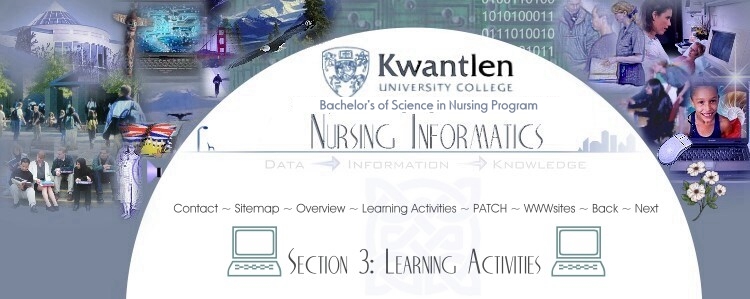
|
Overview:
Ends In View
This learning activity gives the learner the opportunity to:
2. Recognize the societal changes that have occurred since the information age began.
3. Explore strategies to guide clients and others to adapt to the changes created by technological advances.
4. Realize the need to become an informed user of computer applications and to remain current with continual change in technology and computer advances.
In Preparation:
1. Read: Fogg, B.J. (1997). Levels of Analysis for Persuasive Computers, Captology: Stanford
University.
http://www-pcd.stanford.edu/captology/moreinfo/levels.html
2. Read: Murray, B. (1995). Society, Cyberspace and the Future: How can new interactive communication technologies enhance harmonious and functional communities at all scales worldwide? Exploratory Aspen Workshop Report, California Institute of Technology.
http://www.cco.caltech.edu/~rich/aspen.html
In Practice:
1. In class, discuss the paradox of computers and society. Consider how computers can be both:
a) An advancement that creates the need for change and adaptation in people.
b) Tools that can help people keep up with societal changes and the global community.
2. Make a list of the various aspects of people’s lives that can be beneficially influenced by the use of computers and the Internet. What might be lost?
3. How does the lack of access to computer equipment and Internet connectivity impact on the lives of certain groups of people, such as lower socioeconomic populations, rural communities, third world nations, and so on? What can be done? In Reflection: 1. Reflect on how you can support constructive change with individuals, groups, and communities to ease and foster the adaptation to computers and technological advances.2. How do you see yourself staying abreast of the technological changes that occur each year? References:
| Contact | Sitemap | Overview| Learning Activities | WWWsites | PATCH | Back | Next | |